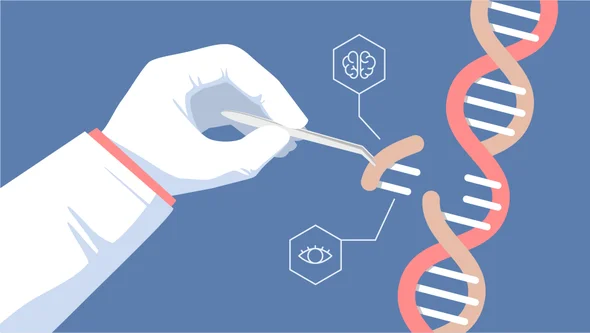The ethics of using CRISPR technology for genetic modification
CRISPR (Clustered Regularly Interspaced Short Palindromic Repeats) is a revolutionary gene-editing technology that has revolutionized the field of genetic engineering. It enables scientists to alter or modify the DNA of living organisms with great precision and ease. The technology has opened up new possibilities for curing genetic diseases and enhancing desirable traits in plants and animals. However, the use of CRISPR technology raises ethical concerns, particularly in the context of human genetic modification. This article explores the ethics of using CRISPR technology for genetic modification.
What is CRISPR?
CRISPR is a gene-editing tool that allows scientists to cut and paste DNA with incredible accuracy. It consists of two main components: the Cas9 enzyme, which acts like a pair of molecular scissors, and a guide RNA molecule that directs the Cas9 enzyme to a specific location on the DNA strand. Once the Cas9 enzyme is at the desired location, it cuts the DNA, enabling scientists to insert or delete genes as needed.
Advantages of CRISPR:
CRISPR technology offers several advantages over traditional gene-editing techniques. It is faster, cheaper, and more accurate than previous methods, allowing scientists to modify DNA with greater precision and ease. CRISPR has already been used to cure genetic diseases in animals, such as sickle cell anemia and muscular dystrophy. It also holds promise for curing human diseases and enhancing desirable traits in plants and animals.
Ethical Concerns:
While the potential benefits of CRISPR technology are clear, there are also ethical concerns associated with its use. One major concern is the potential for unintended consequences. Genetic modification using CRISPR could have unintended effects on the environment and on human health. For example, modifying the genes of plants could lead to unintended consequences for the ecosystem, such as the creation of superweeds or the disruption of natural pollination processes. In humans, genetic modification could lead to unintended health consequences, such as increased susceptibility to certain diseases.
Another ethical concern is the potential for genetic modification to exacerbate existing inequalities. Genetic modification could be used to enhance certain traits, such as intelligence or athleticism, which could exacerbate existing inequalities based on socioeconomic status or race. There is also the potential for genetic modification to create a new form of discrimination based on genetic makeup.
There are concerns about the safety and accessibility of genetic modification technology. There is a risk that genetic modification could be used for unethical purposes, such as creating designer babies or for military purposes. There is also the concern that genetic modification could only be available to the wealthy, creating a divide between those who can afford genetic modification and those who cannot.
Regulation:
Given these ethical concerns, it is clear that the use of CRISPR technology for genetic modification needs to be carefully regulated. This will require a coordinated effort between scientists, policymakers, and the public. The first step in regulating CRISPR technology is to establish clear guidelines for its use. These guidelines should be based on a thorough understanding of the potential risks and benefits of genetic modification using CRISPR. They should also be developed with input from a wide range of stakeholders, including scientists, ethicists, policymakers, and the public.
One potential approach to regulating CRISPR technology is to create an international body to oversee its use. This body could be modeled after the International Atomic Energy Agency, which was created to regulate nuclear technology. The body could establish guidelines for the use of CRISPR technology, monitor its use, and enforce regulations as needed.
Another approach to regulating CRISPR technology is to create a licensing system for its use. Under this system, scientists would need to obtain a license before they could use CRISPR technology for genetic modification. The licensing system would ensure that only qualified scientists with the necessary training and expertise could use CRISPR technology. It could also include requirements for safety testing, risk assessment, and ethical considerations.




